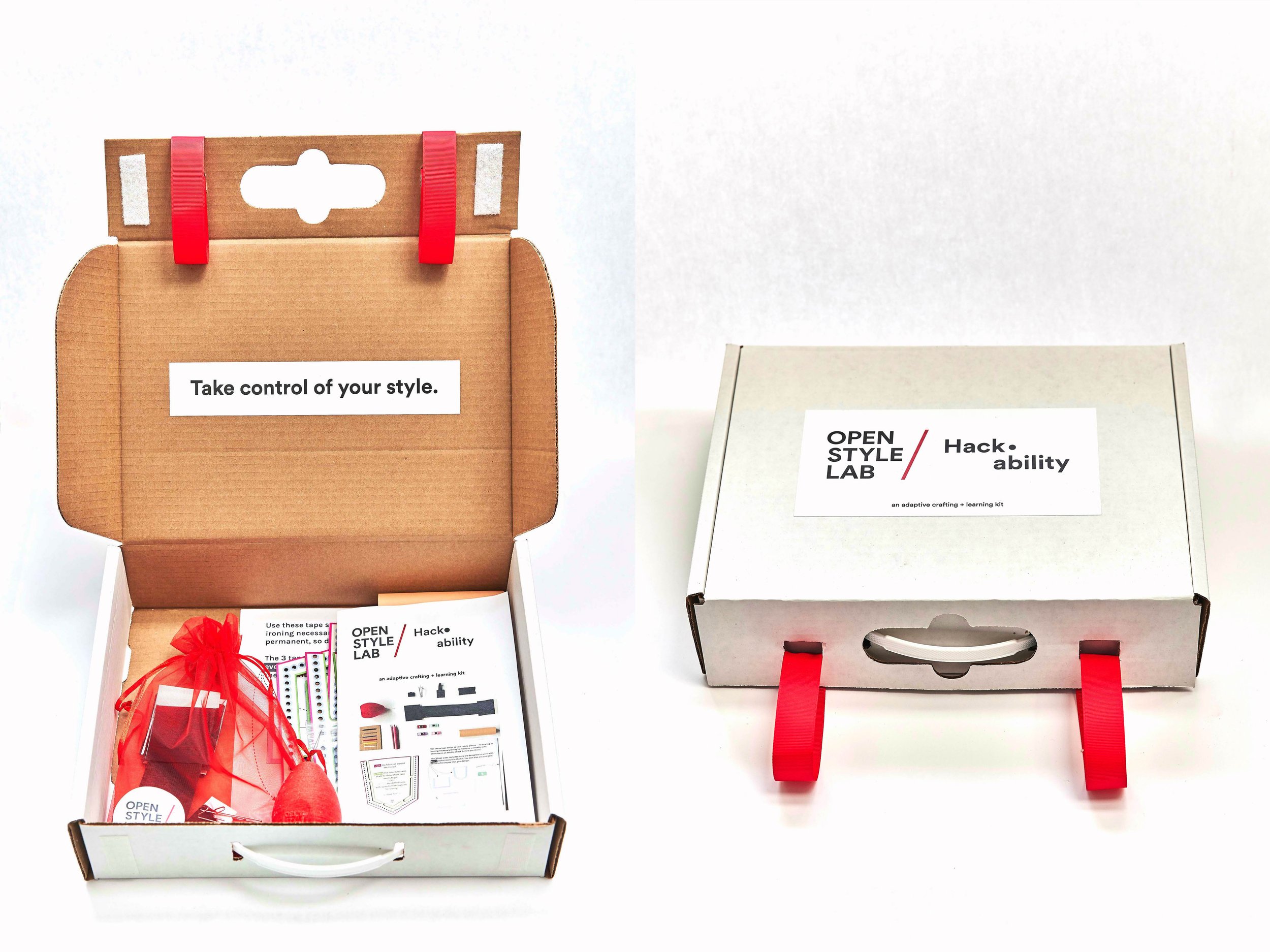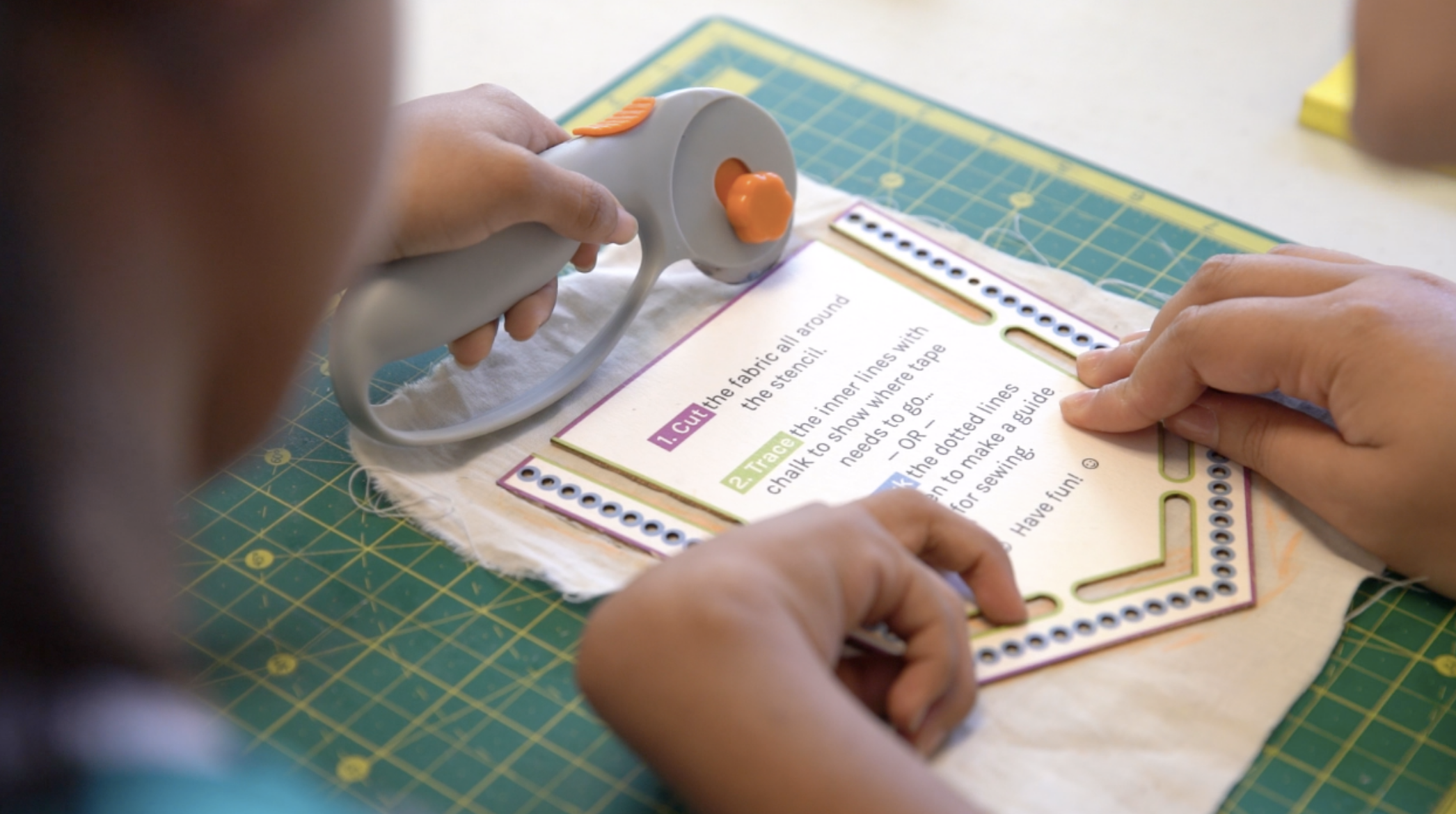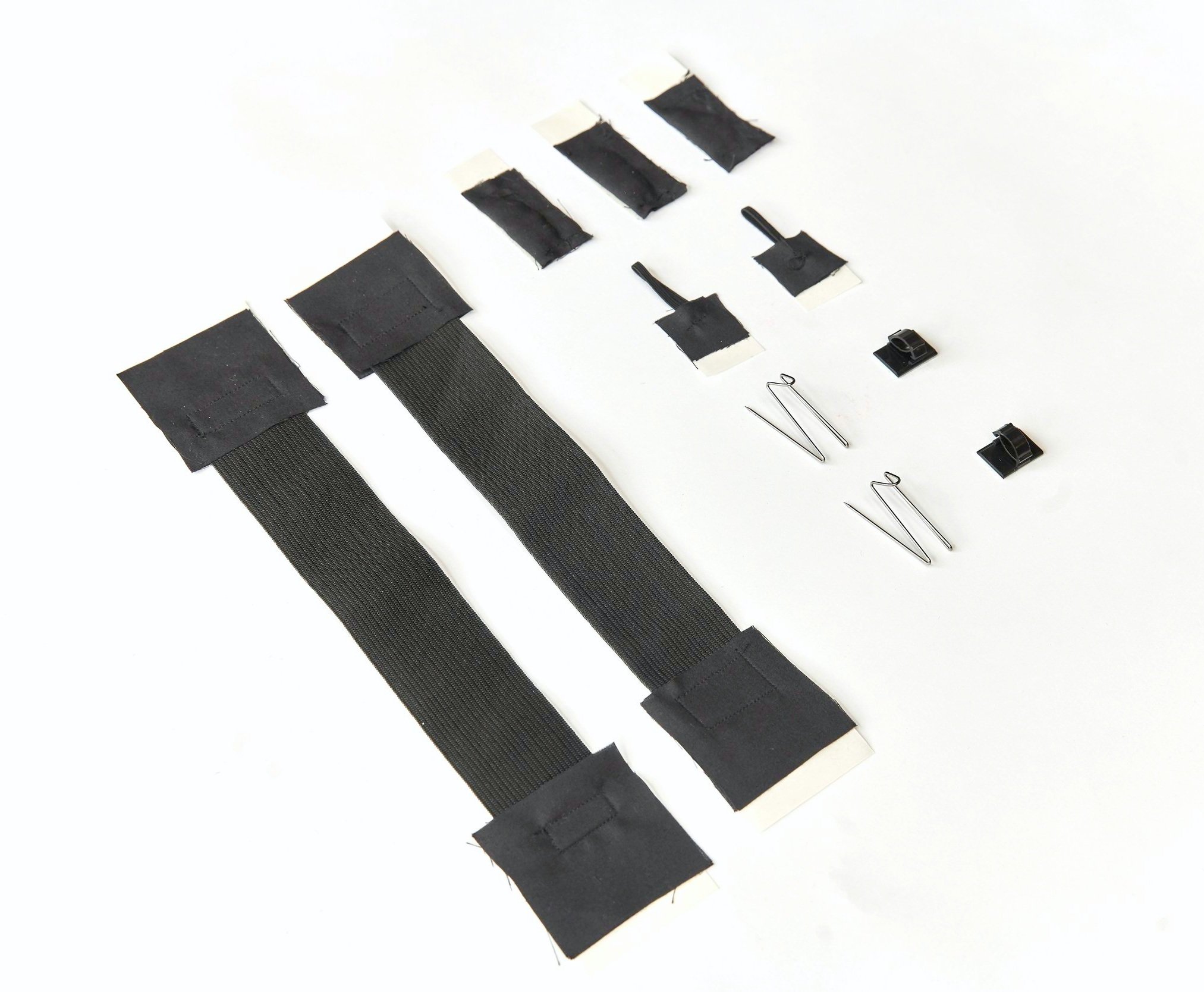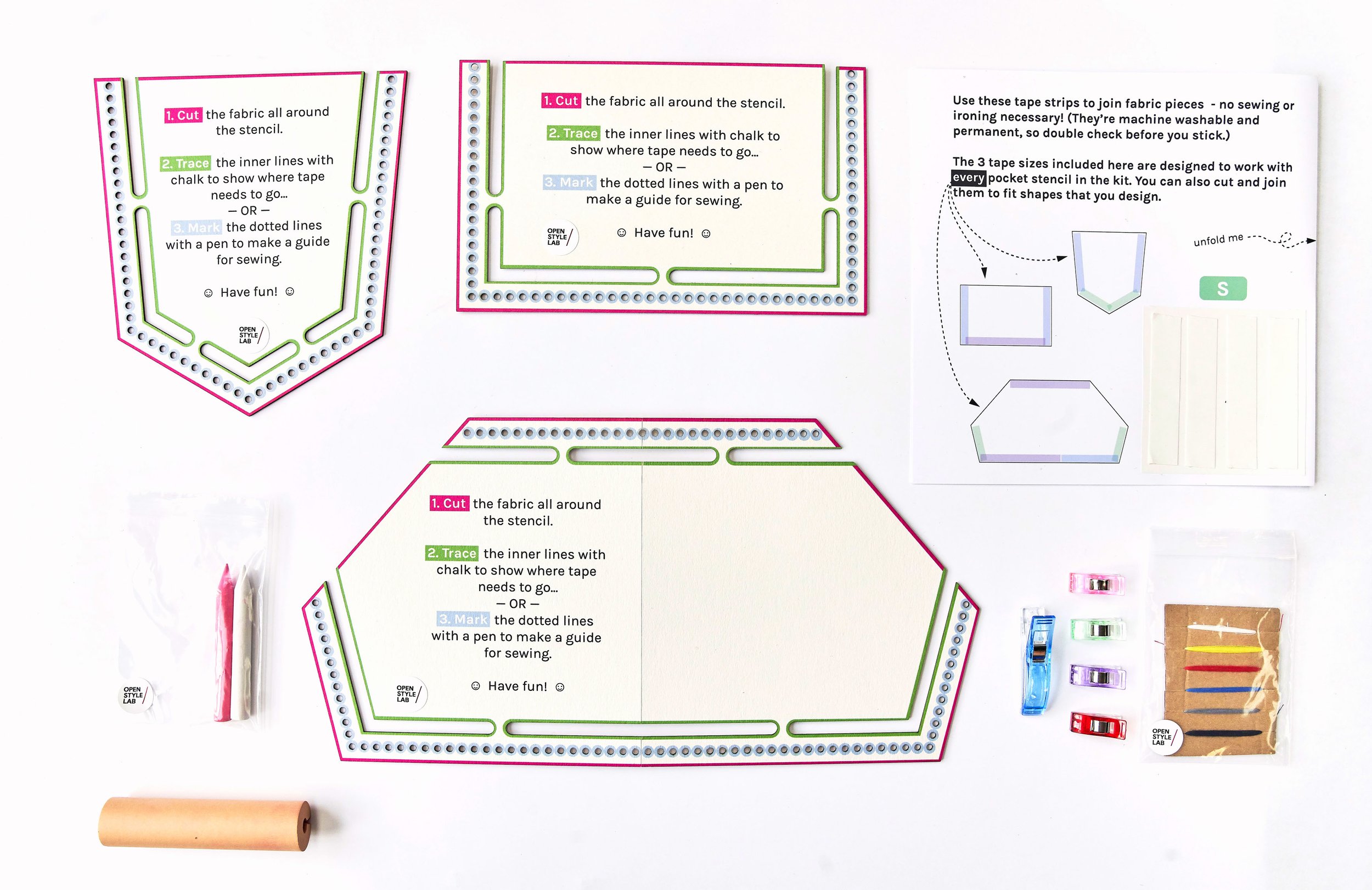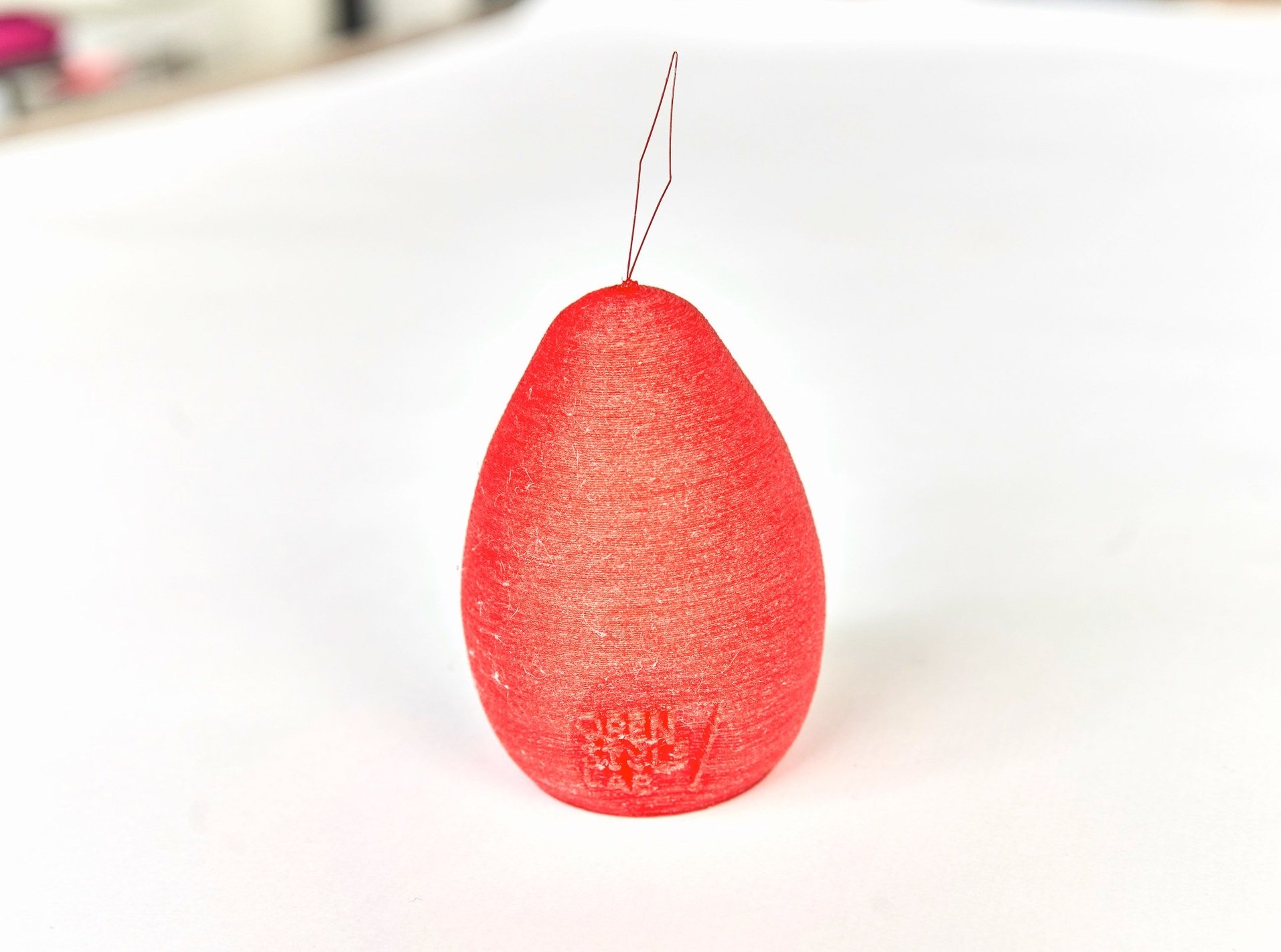Hack•ability Toolkit x Open Style Lab
As a 2019 research fellow at Open Style Lab (an award-winning non-profit focusing on inclusive design & adaptive fashion for the disabled community), I collaborated with 5 other fellows to research and develop Hack•ability , an adaptive toolkit that makes fashion and sewing accessible to people with disabilities.
Hack-ability features a set of customizable pockets that can be added to any garment, and a set of loops that can be added to garments to assist with pulling and tugging during dressing. We also redesign the commercial needle threader to make it more accessible to users with limited fine motor control.
Together, we worked closely with a group of teenage girls with Spinal Cord Injury from the NYU Langone Initiatives for Women with Disabilities (IWD) to understand how fashion affect their identities, and what we as design professionals and researchers can do to leverage that.
The 2019 summer program research focused on three elements: the agency of our disabled collaborators, making as a form of learning STEM (science, technology, engineering and math) through fashion, and product design to create tools that alter or “hack” clothing.
Therefore, we believe it’s important to engage our collaborators from IWD as part of the design process, so we could collect insights about the pain points of dressing with disabilities from them, while also teaching them about fashion, inclusive design, and sewing that they did not have access to previously.
As part of the research process, we identified 4 major disadvantages for off-the-shelf garments:
Lack of sturdy fabric for disabled wearers to pull on with forces when putting on or taking off clothing
Excess fabric (for dresses, skirts, puffy sleeves, etc.) get caught up in wheelchairs
Lack of pockets for wearers to hold their smart phones in accessible location on their bodies
Lack of accessible sewing tools for disabled people to be part of the DIY cloth alteration process
These 4 pain points thereby informed the 4 hacks we designed for Hack •ability. Watch the product videos that demo how to use each hack.
1. Loop Hack - Large: Assist with pulling on pants and jackets
2. Loop Hack - Small: Assist with keeping skirts from flying around or getting caught in wheelchairs
3. Pocket Hack: Help users DIY modular pockets to add to pre-owned garments
4. Adaptive Needle Threader: Make existing needle threader more accessible to people with limited fine motor control
This toolkit was designed with the goals of sustainability, accessibility, and inclusivity, as it’s cost-effective to produce, inclusive of usability for youth with disabilities, and co-designed through a collaborative process with end users.
Here are our team at our final presentation in August, 2019!
